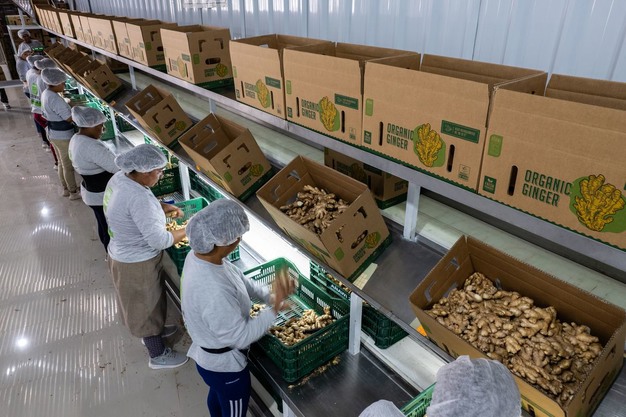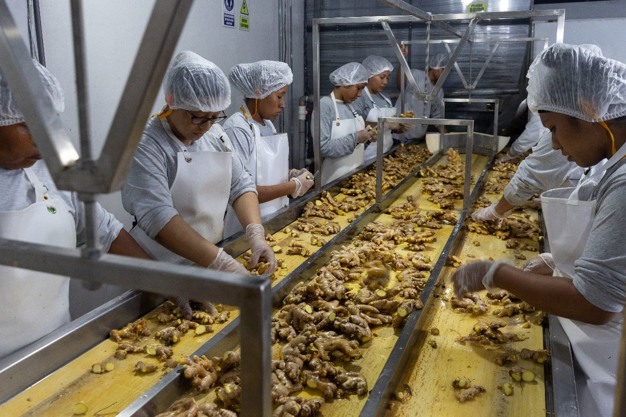Peru is facing another season of short ginger supply. Last year, production volume was down as a result of reduced acreage. This year, low supply seems to be caused by a bacterial disease that affects the quality of the product and is estimated to result in a crop loss of 30 percent.
The country's previous season ended in January and because the new season typically doesn't start until June or July, the market was faced with a ginger shortage that lasted for several months. "When the new season started up, everyone was eager to start shipping and cover their clients' needs," says Nelson Vidaurre with Añawi. As a result, the season saw an early start. Because the ginger was still fragile during the early part of the season, it was shipped by air for the first month, before making the transition to ocean freight towards the end of June.

Slightly extending the season
"All in all, the season saw a strong start," commented Vidaurre. Since then, demand has decreased a bit as summer is typically a slower time for ginger. Additionally, China and Brazil are now also in the market and price sensitive buyers will pull more from these countries and buy lower volumes from Peru. "Hopefully, this slower period of demand will allow Peru's season to stretch out. At first, the forecast was for supply to be dried up by December, but with demand partly shifting to China and Brazil, we may be able to extend the season through January."

Irregular operations
Vidaurre voiced his concern over irregular ginger operations that are shipping lower quality product at a much lower price. Some of these informal operations have three people on their payroll while they ship a higher volume of ginger compared to companies with 30 employees on payroll. "It is an ongoing battle to prevent these irregular operations from shipping ginger," Vidaurre said. "Buyers are recommended to research the companies they buy ginger from. If they do their due diligence, they will become increasingly aware and we will hopefully be able to stop these irregular operations from shipping product."
 For more information:
For more information:
Nelson Vidaurre
Añawi
Tel: +1 (720) 609-4348
nelson@anawiusa.com
www.anawiusa.com
